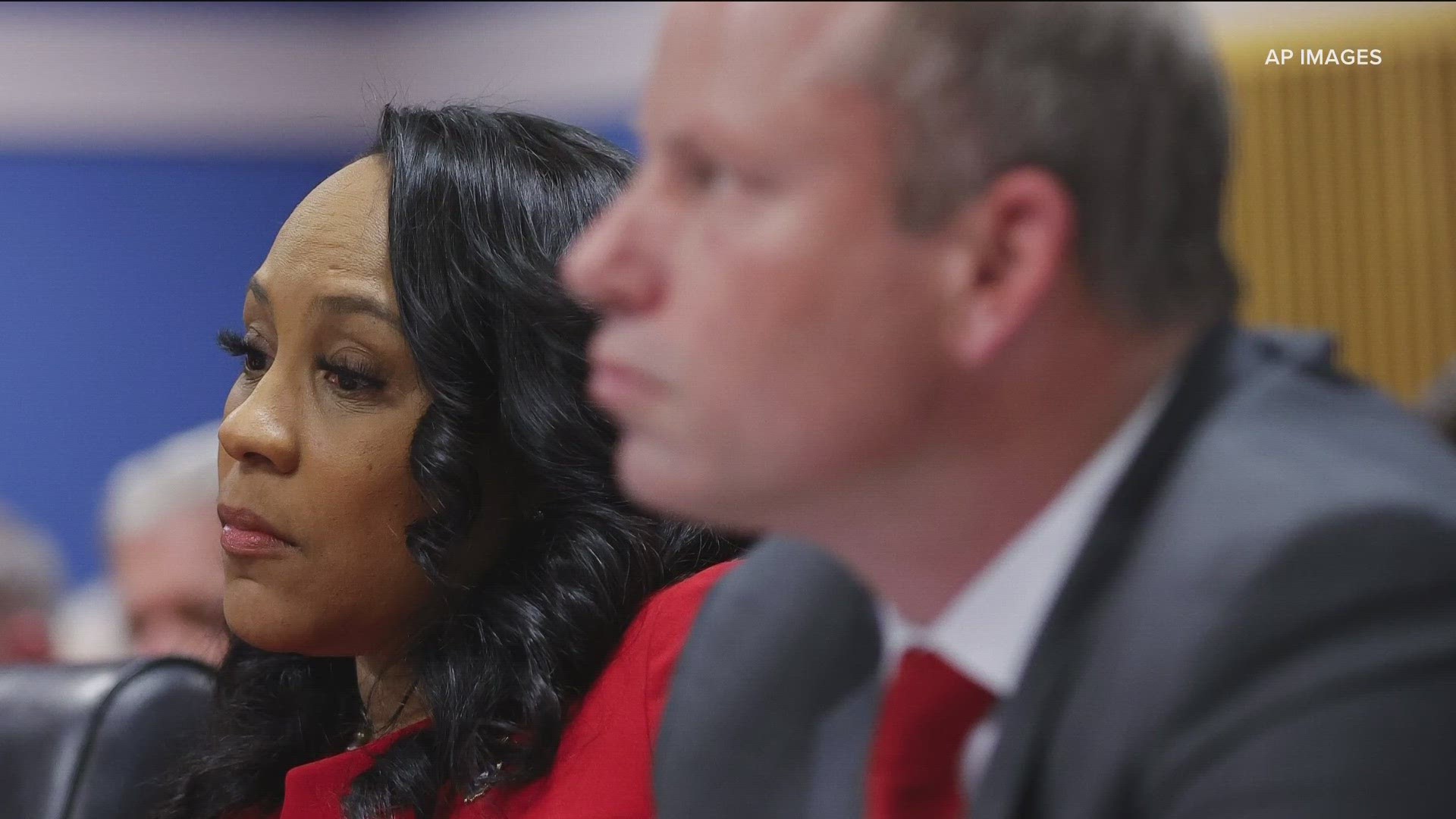ATLANTA — Fulton County District Attorney Fani Willis is asking the Georgia Court of Appeals to let a ruling stand that allowed her to remain on the 2020 election interference case involving former President Donald Trump and other co-defendants.
After months of questioning, Fulton County Superior Court Judge Scott McAfee ruled in March that Willis could remain on the case if special prosecutor Nathan Wade stepped down. The disqualification hearing occurred after Wade and Willis' romantic relationship came to light. Following the order, attorneys for the defendants started a process to appeal the ruling.
Now, on Tuesday, Willis filed a motion in response to the defense team's request for interlocutory review. She's arguing there are no grounds for the court of appeals to grant a review of McAfee's ruling.
RELATED: Trump asks appeals court to review ruling allowing Fani Willis to remain on Georgia election case
"Setting aside whether Wade’s removal from the case was, in fact, necessary, he withdrew from representation hours after the trial court issued its order, and the District Attorney accepted the resignation," she wrote in response to the defense team's request for interlocutory review. "Accordingly, the trial court properly exercised its discretion and inherent authority in denying the motion to disqualify based on the appearance of impropriety, and there is no basis to grant interlocutory review on this ground."
The Georgia Court of Appeals has until mid-May to decide whether it wants to review the disqualification ruling. Visiting associate professor of practice at Emory University School of Law John Acevedo said that process wouldn't look at new evidence or new facts.
"They'll take the record as it was before Judge McAfee. So whatever witnesses said, they're kind of stuck with it," he said. "They'll now look to simply ask the question, was the law applied properly in this instance? It becomes much more of a legal argument."
Defense attorneys believe the trial court "erred as a matter of law by not requiring dismissal and DA Willis’ disqualification" and that it requires immediate review from the Court of Appeals.
"To avoid structural error that would invalidate and require a repeat of the upcoming trials, to establish needed precedent in the area of disqualifying forensic misconduct, and to protect and maintain the public’s confidence in the integrity of the criminal justice system, this Court should grant the Application," they wrote.
Willis, however, argued the court didn't make any errors and should decline the application instead.
"The present application merely reflects the applicants’ dissatisfaction with the trial court’s proper application of well-established law to the facts," she wrote. "Because the applicants have wholly failed to carry their burden of persuasion, this Court should decline interlocutory review."

